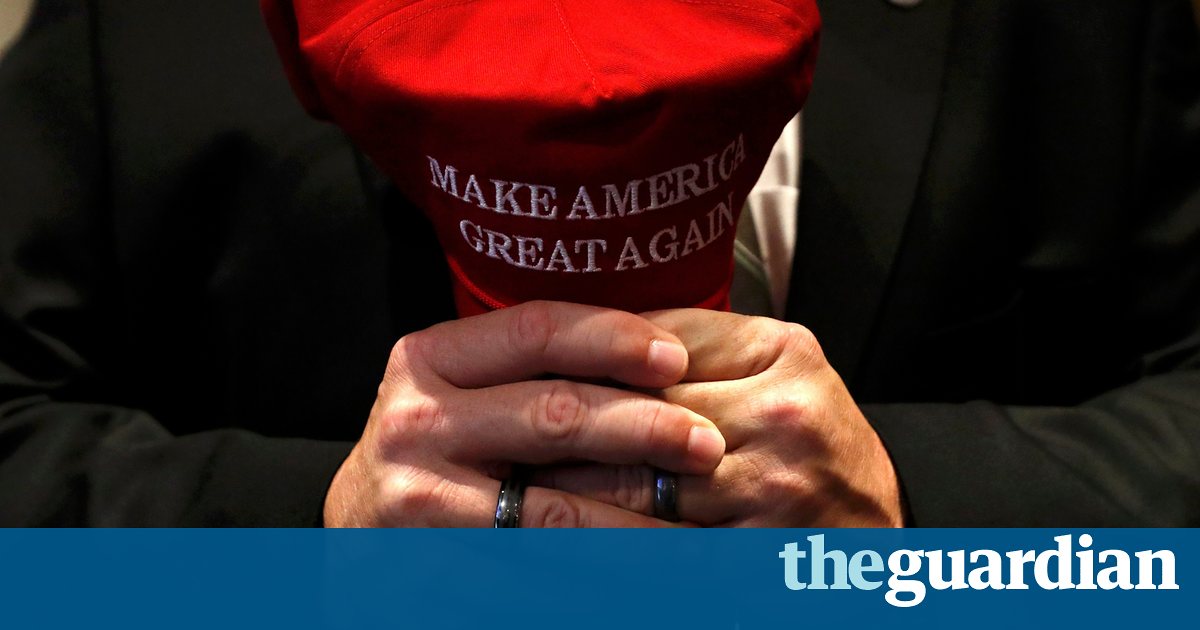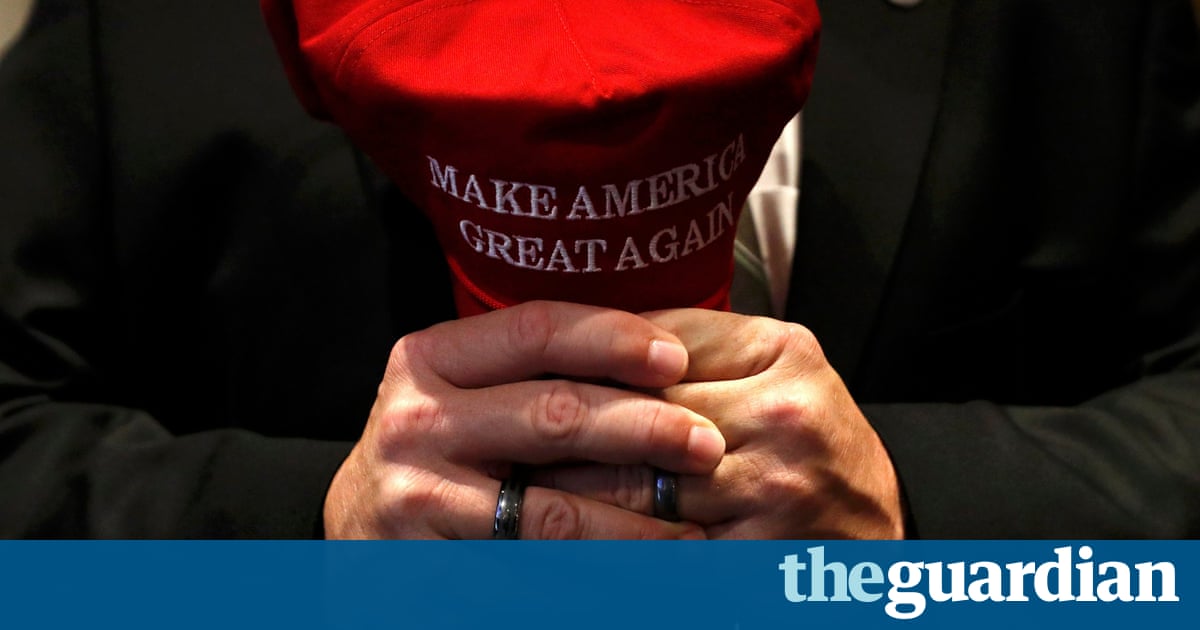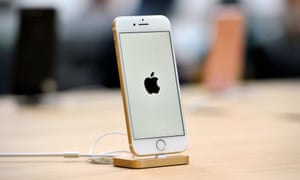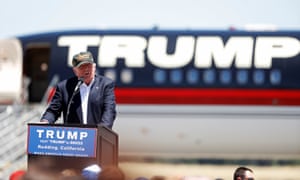Ctrl+Z: Silicon Valley leaders U-turn on Donald Trump

Most tech industry leaders railed against the Republican, but some are now changing their tune as they consider what his presidency will mean

In the end, it took less than 24 hours for Silicon Valley to start making nice with President-elect Donald Trump.
For a full year, the tech industry had collectively railed against the xenophobic, bigoted, and anti-science tenor of candidate Trump, displaying a political consensus so strong that the only public outlier PayPal co-founder Peter Thiel became the target of a shunning campaign from industry insiders. Even the generally apolitical Facebook CEO Mark Zuckerberg rebuked Trump and his supporters fearful voices talking about building walls.
But on Wednesday night Zuckerberg had a new message. Feeling hopeful, read the tag on a photograph Zuckerberg shared of himself and his infant daughter watching the election returns. In the caption, he wrote that creat[ing] the world we want for our children was bigger than any presidency. The accompanying emoji displayed wide, happy eyes and an eager grin.
Zuckerberg was not alone in his change of tune.
We in the tech community are willing to work with President-Elect Trump to help those Americans who need it most, tweeted venture capitalist and erstwhile Trump critic Chris Sacca. The door is open.
Amazon CEO Jeff Bezos, who said in October that Trumps behavior erodes democracy, chimed in with a note of conciliation: Congratulations to @realDonaldTrump. I for one give him my most open mind and wish him great success in his service to the country.
Perhaps Silicon Valley can do business with a businessman in the White House after all.
Immigration, trade and regulation
Trump made various statements during the campaign that suggested a Trump presidency would pose a direct threat at the tech industry. For an industry reliant on immigrant talent, his xenophobia was anathema. He called out Zuckerberg over the industrys hiring of foreign workers on H-1B visas. He told Apple that it would have to build its products in the US, then called for a boycott when the company stood up to the FBI in its quest to force the company to unlock one of the San Bernardino shooters iPhones. He hinted that he might go after Amazon for its growing monopoly in online retail, telling Fox News that Bezos has a huge antitrust problem.
He vehemently opposed the Trans-Pacific Partnership, which was supported by a large coalition of tech industry lobbying groups, who wrote in a letter to congressional leaders that the trade deal would keep borders open to the free flow of data, provide a strong and balanced intellectual property framework, prohibit data localization requirements and other barriers to digital trade, and protect trade secrets, among many other benefits.

He also displayed signs of a dismayingly poor understanding of how technology actually works, with bizarre debate comments on cyber warfare and his statement that the FBI cant review 650,000 emails in eight days. (You can, with software.)
Yet despite his antagonistic exchanges with the technology world, Trump has also put forward decidedly pro-business ideas that could be quite welcome in techno-libertarian Silicon Valley.
Trumps transition website states that regulatory reform is cornerstone [sic] of the Trump administration and promises a moratorium on new regulations, a review of old ones, and the cancellation of many executive orders. He has also promised to lower the corporate tax rate from 35% to 15%.
Whats not to like for corporations?
Rebecca Smith, deputy director of the National Employment Law Project, suggested Trump should fulfill his signature campaign promise to assist working people by taking on corporations passing risk away from themselves and onto the back of workers and illegally calling them self-employed or independent contractors a practice at the core of of successful gig economy companies like Uber and Handy.
But that approach which would involve serious regulatory action by the Department of Labor does not seem likely from any Republican administration, Trumps rhetoric notwithstanding.
Under the Trump administration, the argument of contractor v employee falls more on the Uber side than it does under a Clinton administration, said Tim Wilson, a venture capitalist with Artiman.
Wilson anticipated both opportunity and potential danger under a Trump administration. Trumps apparent eagerness to set off a trade war with China could be damaging to consumer electronics companies like Apple, which rely on Chinas manufacturing infrastructure and workplace, as well as the global supply chain of minerals.
Apple cant manufacture a phone overnight in the United States, he said. This is a dangerous game to play.
New tech opportunities?
Still, other Trump promises might create new markets ripe for Silicon Valleys favorite form of disruptive innovation, such as his plan to deport millions of undocumented immigrants, some of whom form the bulk of the countrys agricultural labor force. That might create opportunity for the agtech sector, Wilson said.
If they really are serious and farm labor gets threatened, then anything that automates labor is something that is going to uptrend, he said.
Clean energy technology may be a loser, though, Wilson said, given Trumps enthusiasm for fracking, coal, and fossil fuels. The value proposition of anyone trying to reduce carbon dioxide is going to be hurt, he said.

Even if Trump ends up being good or at least tolerable, for the tech industry, many people who work in the industry are feeling less sanguine about the future.
Catherine Bracy, a former director of Code for America and co-founder of the TechEquity Collective, questioned how people in the realm of civic technology could continue doing their work under Trump.
What does it mean to be building tools that make an authoritarian dictator government more efficient? she asked. How do you continue to do your work to make it easier for people to do their immigration paperwork when Trump is threatening to deport DREAMers [children of undocumented immigrants]?
It means they dont care about us
Bracy expressed dismay at the new, conciliatory tone of tech industry leaders, as did Leslie Miley, the director of engineering at Slack. Chris Sacca is striking a softer tone, he said. Well you dont have to worry about stop and frisk, you dont have to worry about being deported, you dont have to worry about being Muslim.
Theyre all white men who are saying that, he added. They have nothing to lose.
Miley, who is black, suggested that the Trump presidency might cause Silicon Valley to lose highly skilled workers not only by stopping them from immigrating here, but by causing some to emigrate elsewhere.
For myself, I am reconsidering what my role is in the United States, he said. I am exploring all of my options because I dont like living in fear, and right now I am living in fear. Living in a country that Im afraid of is not something I want to do. Maybe that feeling will subside, maybe it will change, but today, thats how I feel.
Of course, in addition to highly skilled H-1B visa immigrants, the tech industry also relies on an industry of service sector workers, many of whom are immigrants as well.
My whole team is worried, said Adriana Floros, a 35-year-old Mexican immigrant who works in the cafeteria at Intel. [Trump] is going to make things horrible for all the Latinos. Im a resident, but Im worried that if something happens they will take it away.
Floros said said that she had overheard several Intel employees cheering the Trump victory at work. They were really happy and I felt terrible, she said, because what it means for me is that they dont care about us.